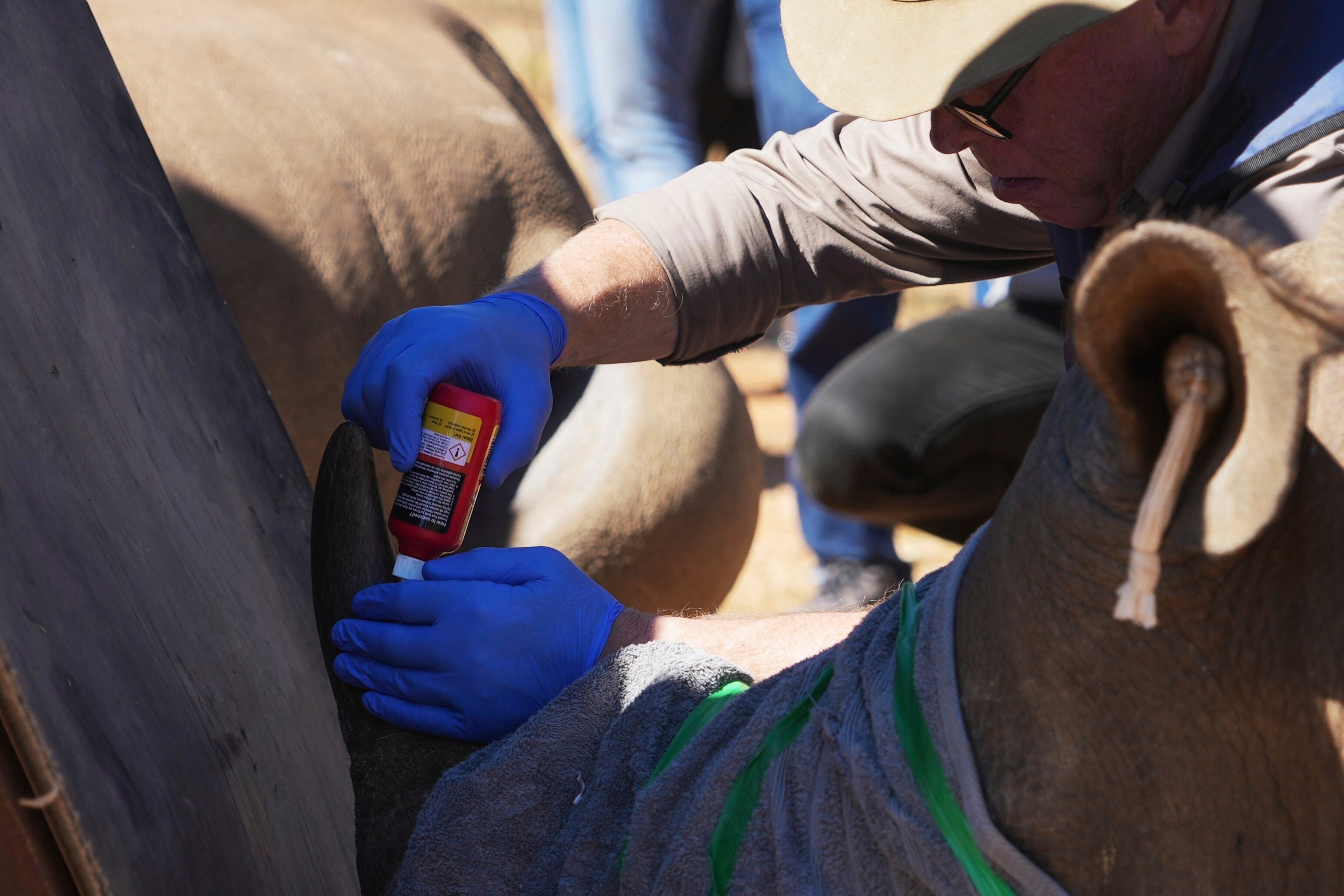South Africa has launched an innovative anti-poaching campaign, injecting rhino horns with radioactive isotopes to deter illegal trafficking.
The University of the Witwatersrand, alongside nuclear energy officials and conservationists, initiated the project on Thursday, with five rhinos receiving the harmless isotopes. These are designed to be detectable by customs agents. The university hopes this marks the start of a mass injection programme for the nation's declining rhino population.
Last year, about 20 rhinos at a sanctuary were injected with isotopes as part of initial trials that paved the way for Thursday's launch. The radioactive isotopes even at low levels can be recognised by radiation detectors at airports and borders, which can lead to the arrest of poachers and traffickers.

Researchers at Witwatersrand's Radiation and Health Physics Unit say that tests conducted throughout the pilot study confirmed that the radioactive material was not harmful to the animals.
“We have demonstrated, beyond scientific doubt, that the process is completely safe for the animal and effective in making the horn detectable through international customs nuclear security systems,” said James Larkin, chief scientific officer of the Rhisotope Project.
“Even a single horn with significantly lower levels of radioactivity than what will be used in practice successfully triggered alarms in radiation detectors,” said Larkin.
The tests also confirmed that individual horns could be detected inside full 40-foot shipping containers, he said.
The International Union for Conservation of Nature, an international conservation body, estimates that the global rhino population stood at around 500,000 at the beginning of the 20th century but has now declined to around 27,000 due to continued demand for rhino horns on the black market.
South Africa has the largest population of rhinos with an estimated 16,000 but the country experiences high levels of poaching with about 500 rhinos killed for their horns every year.
Private and public rhino owners and conservation authorities have been urged approach the university to have their rhinos injected.







